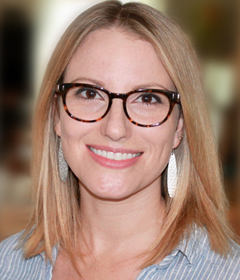Establishing Inclusive Accommodations in the Student Union
According to the latest data provided by the National Center for Education Statistics (NCES), nearly one-fifth of undergraduates in the 2015-2016 academic year reported having a disability — defined by the Americans with Disabilities Act (ADA) as a “physical or mental impairment that substantially limits one or more major life activities.”
It follows that roughly 20 percent of students require special information, accommodations, and support to ensure they have an equal opportunity to achieve their postsecondary education goals. But research suggests their needs may not be fully met, with additional NCES data revealing that 40 percent of students with disabilities who began attending a four-year college in 2011 graduated with a bachelor’s degree by 2017, versus 57 percent of their peers without disabilities.
Campus student centers, often essential in fostering a sense of student belonging, are an important piece of the puzzle when it comes to supporting the goals of students living with disabilities. In a 2015 analysis of student narratives published in the Journal of College Student Development, researchers identified three themes that contributed to a sense of belonging for students living with disabilities:
“First, sense of belonging was intricately tied to students’ ability to self-advocate,” the authors noted in “A Sense of Belonging Among College Students with Disabilities: An Emergent Theoretical Model.” “Second, students discussed their need to master the student role. Third, students spoke of the importance of supportive relationships. Moreover, as students developed a sense of belonging, they enhanced their ability to master the student role, self-advocate, and further develop social relationships.”
Disability Resource and Cultural Centers
Campus student unions can better ensure inclusion in higher education by fully embracing the needs of all students, teachers, and staff. To do so, unions must make an intentional effort to ensure that students with disabilities can learn and achieve their goals.
The first step when it comes to serving students with disabilities, of course, involves communication with your school’s disability resource center. When hosting events, workshops, and meetings at Illinois State University, for example, the Bone Student Center follows the guidelines set forth by the university’s Student Access and Accommodation Services.
This guidance dictates that appropriate accessibility statements should be included on all registration materials and program announcements used to inform the public of the event, including bulletins, brochures, flyers, and letters. It also requires event planners to designate a contact person to answer questions or accept accommodation requests for each event and place that contact’s number on all associated materials. If event planners need assistance from the university’s Student Access and Accommodation Services, requests must be placed at least five business days before the event.
In addition to disability resource centers that direct and manage accommodations, a select number of schools have established or are in the process of establishing disability cultural centers designed to help students, faculty, and staff with disabilities connect, build identity, and ultimately foster a sense of institutional belonging.
According to data gathered by the University of Illinois–Chicago, the University of Minnesota–Twin Cities formed the first disability cultural center in 1991 after the Americans with Disabilities Act (ADA) became law in 1990. Syracuse University established the second such center nearly 20 years later.
Today, nearly 20 disability cultural centers exist, with quite a few additional centers either just built or underway. In 2023, for example, the University of Texas established the first Disability Cultural Center in Texas to act as a community space for university members with disabilities.
In another take on community-building for students living with disabilities, University of South Florida– St. Petersburg launched an inclusive postsecondary education program known as the UMatter Program in 2020. Made possible by a $900,000 grant from the Florida Center for Students with Unique Abilities, the program’s mission is to provide “an accessible and inclusive university experience leading to competitive integrated employment and independent living.“
UMatter staff and mentors support students in the program as they move from high school to college, develop socialization and independent living skills, and receive training through internships. Eligible students receive scholarships for housing and tuition, among other costs.
What Unions Are Doing
Many student unions are taking steps to bolster the efforts of disability resource and cultural centers by boosting accessibility in their own student centers. In recent years, Miami University made accessibility upgrades within the Armstrong Student Center, including the 2020 installation of floor- and armchair-level elevator buttons in main passenger elevators.
ACUI member Sarah Feldman, operations manager at Temple University in Philadelphia, said it’s also essential to train student workers on base knowledge and disability etiquette.
“One thing we have done in the past [at Temple’s Howard Gittis Student Center] is bring in our school’s Disability Resources and Services department and have them present at our staff trainings,” Feldman said. “This gives student staff additional knowledge on the services the department offers disabled students in general and as well as offering recommendations on how the student workers can best assist clients/patrons that may need accommodations.”
Feldman said the student center has also welcomed a student who is both a frequenter of the center and has a strong presence on campus to speak on his experience living with a disability.
“I think the fact that the students were already familiar with him was helpful and eye-opening because students were able to learn about how certain ableist tendencies actually affected someone they knew,” Feldman said. “I think he did a good job applying so many topics that the students had heard of but never felt a connection to.”
The experience benefited both the workplace and students personally. “I could certainly notice a shift in our student staff’s understanding of the necessity of accommodations and their willingness to advocate for others in their respective jobs,” Feldman said. “It brought to light the importance of accommodations and how making small changes can really impact someone else.”

